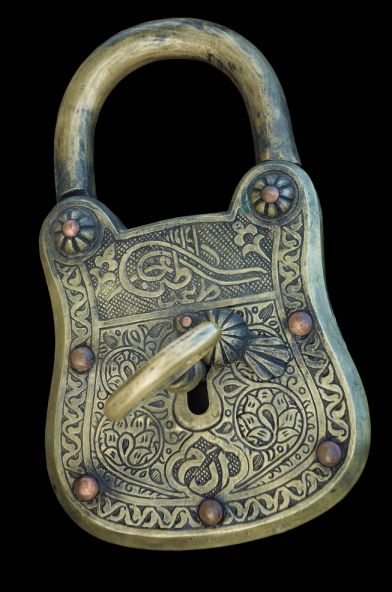| Just the Facts
|
|
| Thursday, October 26, 2023 | |
As the war drags on and the death toll goes up, the media is making a predictable turn. Their sympathy is shifting from Israel toward the Palestinians. Increasingly, we'll be shown tragic images of Palestinian children and women injured or killed. The not-so-subtle message will be, "If only those mean Israelis would stop attacking innocent people, stop occupying others' land, and start living in peace." Every death, every tear, every life matters—on both sides. But what you will probably not see online or on television is a clear presentation of the facts. With the kind permission of Middle East expert Dr. Charlie Dyer, I offer his summary of the facts: Fact #1 In 1947, the U.N. voted on a partition plan for the land. The Jewish people reluctantly accepted the proposal, but the Arabs did not (meaning they refused any plan that permitted a Jewish state). When the British Mandate ended in 1948, Israel declared itself a state. The Palestinians and the Arab countries on all sides immediately attacked it. When the conflict was over, Israel controlled more land than originally promised. However, no formal borders were determined--only "green lines" to mark where the different parties were when the armistice was announced.
Fact #2 The final borders were still to be determined, but no Arab countries would agree to make peace with Israel. Jordan had taken over the central part of the land and annexed it as their own. They called it the “West Bank of the Hashemite Kingdom of Jordan,” which was popularly shortened to the “West Bank.” But it was never turned into a country of Palestine by the Jordanians.
Fact #3 In 1967, Egypt, Syria, and Jordan vowed to push the Jews into the Sea. In six days, Israel defeated all three and captured the West Bank, Golan Heights, Gaza Strip, and the Sinai Peninsula. Israel offered to negotiate the return of most (though not all) land in exchange for peace. The Arabs met in Khartoum and announced their three no’s: No peace with Israel. No negotiations with Israel. No recognition of Israel.
Fact #4 In the next few years, Israel began expanding into the areas it had captured. Most of the changes in the West Bank area were designed to help provide more defensible borders and additional housing for the country as its population expanded. About a half million Israelis are now living in the West Bank area. Most of those are in bedroom communities within 5 miles of the Knesset, Israel's capital in Jerusalem, though some are scattered throughout.
Fact #5 In the late 1990s, President Clinton tried to broker peace between Israel and the Palestinians. Yitzhak Rabin and Yasser Arafat shook hands on the White House lawn, but the process quickly stalled out. Israel never agreed to give back all the West Bank because they felt the 1967 borders were indefensible in light of modern weapons. (For example, terrorists would be able to smuggle shoulder-fired missiles to within six miles of Israel's international airport.) And Arafat rejected a proposal that would have given the Palestinians most of the land.
Fact #6 In 2005, Israel unilaterally withdrew from Gaza. Two years later, Hamas took control and began using the area as a launch pad for their attacks on Israel. Hamas's charter calls for the destruction of Israel and the establishment of an Islamic Caliphate that extends from the Jordan River to the Mediterranean. That’s the basis for what’s happening now.
There you have it—a factual history of the Arab-Israeli conflict. But for the believer, knowing is just the beginning.
What we can’t do—is nothing.
P.S. Listen to Moody Radio's one-hour special, After the Attack on Israel, when you go to: https://www.moodyradio.org/specials
|
|
| How safe is your safe?
|
|
| Thursday, October 19, 2023 | |
Question: Do you keep your valuables in a safe? If so, how safe is your safe? An old story offers a fresh perspective. The man was not just rich—he was extremely rich. And he had a question for Jesus: “What must I do to inherit eternal life?” Jesus simply replied, "You know the commandments,"—and He listed several. Undaunted, the rich ruler replied, "All these I have kept from my youth." Amazingly, Jesus did not disagree with the man. “One thing you still lack,” offered the Teacher from Nazareth. At this point, the rich guy leaned forward, not wanting to miss the secret. “Sell all that you have and distribute to the poor, and you will have treasure in heaven. And come follow me,” invited Jesus. At that, the man was not just sad. Luke 18 recalls he was “very sad, for he was extremely rich.” An odd paradox: sad because he was extremely rich. Ponder that! Turns out, the more we have, the less we give. Those who track charitable giving statistics can prove it. If we're not careful, wealth turns us upside down and shakes out every last coin of grace or goodness, locking it away in an unsafe safe. The one called "Me." Here’s the thing. By any standard of world measurement, you and I are not just rich. We are extremely rich. However, we are rich but for a few fleeting years. And every day, we rich folks pass by scenes of sickness, sorrow, or starvation that our wealth could definitely change for the better! Today, you and I take our place alongside that rich young ruler. Jesus hears the jangle of money in our pockets and bids us invest treasure in heaven. While we can.
|
|
| What We Need Now
|
|
| Thursday, October 12, 2023 | |
They were on a mission: seize a large stash of weapons. On April 19, 1775, British soldiers marched inland toward Concord, Massachusetts, hungry to eliminate the colonists' firepower. But the secrecy of the British mission had been exposed by Paul Revere, who rode in advance to warn the colonists of the approaching British. The colonists' forces consisted of two groups. Militia men formed a part-time army and typically trained six days each year. By contrast, Minutemen trained twice weekly—on top of their regular jobs. All adult males were required to take militia training. But being a Minuteman was voluntary. They never slept without their weapons and supplies ready for immediate action. On the morning of April 19, British soldiers stood on one side of Concord’s North Bridge, and the colonists on the other. Minutemen led by Captain Isaac Davis were first in line to advance. When asked if he was afraid to stand up against the British and fight, Davis replied, “I am not, and I haven’t a man who is!” A three-minute battle followed in which Davis was shot in the heart, dying immediately, along with a fellow soldier named Abner Hosmer. But before giving up their lives, these brave men fired the “shot that was heard ‘round the world.” As I stood on that same North Bridge a few weeks ago, I thought about the spiritual conflicts being fought in our nation today. There are battles about morals and decency, conflicts about the definition of manhood and womanhood, not to mention skirmishes over abortion and euthanasia. What we need now is a brand-new force of spiritual Minutemen and women. Folks who are not afraid to take a stand for biblical truth. We need a company of believers who—when asked if they are afraid to stand up for Christ reply, “I am not!” It's much easier to be a regular "militia man"—training just six days a year, knowing you won't be called on to lead the fight. But courage is what we need now—women and men who are ready and willing at a moment's notice. We need Minutemen, not mere militiamen. Which are you?
|
|
| The Good Stuff
|
|
| Thursday, October 05, 2023 | |
Sadie is seven and thinking about heaven. And to focus on heaven is to fuel your curiosity--regardless of age. Recently, Sadie peppered her mom with questions about the end times. Turns out Sadie wanted to know the exact date Jesus will return. When her mom confessed she did not know, Sadie was flummoxed. Her response: “Welp. I guess you aren’t as smart as you look. Grownups do NOT know it all!” Sadie is right, of course. Grownups do not know it all. In Matthew 24:36, Jesus said, "But about that day and hour, no one knows, not even the angels of heaven, nor the Son, but the Father alone." Another conversation found the two of them treading in the deep waters of predestination. Sadie's question: "Did God make me a Christian, or did I really get to choose?" Her mom responded, “You absolutely get to choose. But He always wanted you. Always.” Sadie nodded, concluding, “I sure am glad I chose the good stuff.” The Bible is clear: salvation always involves a choice—yours. Romans 10:9 declares, “If you confess with your mouth Jesus as Lord and believe in your heart that God raised Him from the dead, you will be saved.” Have you done that—confessed Jesus as Lord? Have you chosen to believe that God raised Him from the dead? Have you chosen “the good stuff?” Don't dawdle. The moment will come when it's too late.
|
|
| Save Them All
|
|
| Thursday, September 28, 2023 | |
I saw an advertisement at the airport that rattled me. The headline read, Save Them All. Immediately, I thought, what a great way to encourage believers to reach out to their unsaved friends. Instead, this slogan was for an organization trying to shut down puppy mills. Now, I'm all for treating animals humanely—that's decidedly biblical. But I found myself asking, why aren't we Christians at least as bold in rescuing souls as animal lovers are in rescuing dogs? If others can get worked up over puppies (I love them, too), shouldn't believers get much more excited about the eternal destinies of our friends and loved ones? Save them all. Isn’t that what you want for your family members? Isn’t that what you want for your friends? Isn’t that what you want for your neighbors?
Do you merely “hope” they make it to heaven? Or are you desperate to see them there? Save them all.
Powerful thought. But it won't happen if we keep living the way many of us have been living. We're too afraid of embarrassing ourselves, too fearful of being "outed" by our friends, should we explain the gospel. But that’s not the Jesus way. His desire? Save them all.
Two questions for you: #1 When did you last share the simple saving message of Christ verbally with a friend or loved one? #2 Would Jesus be okay with your answer?
P.S. Thanks to my dad, who, at the age of 90, still cares about lost people and inspired me to write this blog!
|
|
| Records per page First Prev 2 3 4 5 6 7 8 9 10 11 of 126 Next Last | |
 Jon Gauger Jon Gauger |
|||||||||||||||
| Thursday Thought | |||||||||||||||
|
|
|||||||||||||||
Recent Posts
|
.jpg)



